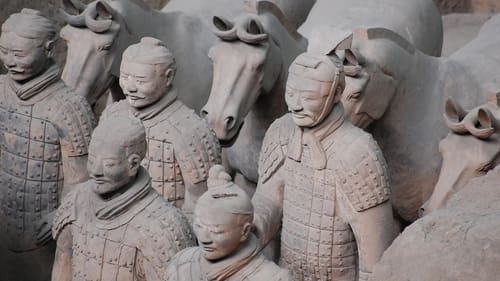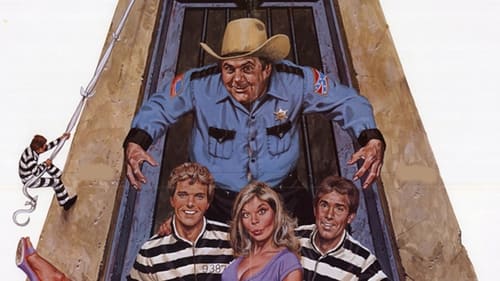
Producer
Filmed in IMAX, a young Mayan boy who lives close to the ruins becomes acquainted with an archaeologist (Guerra) and asks her to tell him about his ancestors. The crew travelled to over 15 locations in Mexico and Guatemala, including Tulum and Chichén Itzá.

Producer
In the summer of 1953, the Canadian government relocated seven Inuit families from Northern Québec to the High Arctic. They were promised an abundance of game and fish - in short, a better life. The government assured the Inuit that if things didn't work out, they could return home after two years. Two years later, another 35 people joined them. It would be thirty years before any of them saw their ancestral lands again. Abandoned in flimsy tents, the Inuit were left to fend for themselves in the desolate settlements of Resolute Bay and Grise Fiord, where the sea was nearly always frozen and darkness reigned for months on end. Suffering from hunger, extreme cold, sickness, alcoholism and poverty, Québec's Inuit had become the victims of a government policy supposedly designed to return them to their "native state". Evidence points to the government's wish to strengthen Canada's sovereignty in the Arctic as playing a part in the decision to relocate.

Writer
Filmed in IMAX, a young Mayan boy who lives close to the ruins becomes acquainted with an archaeologist (Guerra) and asks her to tell him about his ancestors. The crew travelled to over 15 locations in Mexico and Guatemala, including Tulum and Chichén Itzá.

Director
Filmed in IMAX, a young Mayan boy who lives close to the ruins becomes acquainted with an archaeologist (Guerra) and asks her to tell him about his ancestors. The crew travelled to over 15 locations in Mexico and Guatemala, including Tulum and Chichén Itzá.

Executive Producer
This historical drama tells the story of Qin Shihuang, who unified China’s vast territory and declared himself emperor in 221 B.C. During his reign, he introduced sweeping reforms, built a vast network of roads and connected the Great Wall of China. From the grandiose inner sanctum of Emperor Qin's royal palace, to fierce battles with feudal kings, this film re-creates the glory and the terror of the Qin Dynasty, including footage of Qin's life-sized terra cotta army, constructed 2,200 years ago for his tomb.

Producer
This historical drama tells the story of Qin Shihuang, who unified China’s vast territory and declared himself emperor in 221 B.C. During his reign, he introduced sweeping reforms, built a vast network of roads and connected the Great Wall of China. From the grandiose inner sanctum of Emperor Qin's royal palace, to fierce battles with feudal kings, this film re-creates the glory and the terror of the Qin Dynasty, including footage of Qin's life-sized terra cotta army, constructed 2,200 years ago for his tomb.

Executive Producer
This feature documentary is a sequel to the 1966 documentary The Things I Cannot Change, which, by focusing on the Bailey family of Montreal, provided an anatomy of poverty in North America. Courage to Change explores what has happened to the Baileys in the intervening 18 years.

Executive Producer
By the late 1800s the free-ranging buffalo of the western plains of North America were almost extinct. This documentary is the story of the buffalo's revival. Live action, eye-witness accounts and archival photos document our fascination with this ancient and legendary animal.

Executive Producer
This documentary tells the story of Max Ward, a former bush pilot whose company grew to become one of the major airlines in Canada. A study of entrepreneurship, the film focuses on Ward himself, depicting his distinctive style of hands-on management. Between hallway meetings, informal chats with the staff, checks on maintenance, flight preparations and in-flight conversations with vacationing customers it becomes apparent that the president's personal touch is a key element in Wardair’s success story.

Producer
Two young hitchhikers are picked up a speed-crazed young woman, who tears around the countryside. She leaves them to take the blame for her activities, and they find themselves sentenced to six months in prison. The girl, feeling bad about what she did to them, resolves to break them out of the prison

Executive Producer
Pete Standing Alone is a Blood Indian who, as a young man, was more at home in the White man's culture than his own. Confronted with the realization that his children knew very little about their origins, he became determined to pass down to them the customs and traditions of his ancestors. This film is the powerful biographical study of a 25-year span in Pete's life, from his early days as an oil-rig roughneck, rodeo rider and cowboy, to the present as an Indian concerned with preserving his tribe's spiritual heritage in the face of an energy-oriented industrial age.

Executive Producer
Devil at Your Heels, traces the trials of stuntman Ken Carter who attempts a death defying aerial jump in a car. Not content with a normal jump, Ken Carter attempts a jump from Canada to the USA.

Producer
This documentary short is a portrait of Leader of the Progressive Conservative Party and 13th prime minister of Canada, John George Diefenbaker (1895-1979). Diefenbaker's political career spanned 6 decades. When he died in 1979, his state funeral and final train trip west became more a celebration of life than a victory for death.

Executive Producer
This documentary from 1980 depicts a factory community in China where over 6000 workers process, spin and weave raw cotton into 90 million yards of high-quality cloth per year. Also seen are the workers' residential, social, recreational and educational facilities, all located on factory property. The film presents an engrossing study of a lifestyle that is very different from that of the Western world.

Executive Producer
Bureaucracy shapes our lives and guides us from the cradle to the grave. This documentary lays bare the idiosyncrasies of bureaucracy, whether in Canada, Austria, Hungary, the Vatican or the Virgin Islands. It also attempts to make the functioning of the public service more comprehensible. The absurdities of bureaucratic behaviour are exposed with humour and irreverence.

Director
This film is a short documentary portrait of economist, technologist and lecturer Fritz Schumacher. Up to age 45, Schumacher was dedicated to economic growth. Then he came to believe that the modern technological explosion had grown out of all proportion to human need. Author of Small Is Beautiful - A Study of Economics as if People Mattered and founder of the London-based Intermediate Technology Development Group, he championed the cause of "appropriate" technology. The film introduces us to this gentle revolutionary a few months before his death.

Producer
This film is a revealing portrait of a tough cop with a big heart. Sergeant Bernie "Whistling" Smith walks the beat on Vancouver's Eastside, the hangout of petty criminals, down-and-outs and a variety of characters. His policing is unorthodox. To many drug users, petty thieves and prostitutes in this economically depressed area he is more than the iron hand of the law, he is also a counsellor and a friend.

Producer
This documentary film is about wolves and the negative myths surrounding the animal. Exceptional footage portrays the wolf's life cycle and the social organization of the pack, as well as film of caribou, moose, deer and buffalo.

Producer
A poor bush worker refuses to sacrifice his dignity to provide his family with a better life.

Producer
Filmed in the Ontario countryside, this film shows that farm life is changing and that for some farmers the future looks bleak. What to do with farmers and farms that no longer measure up to the increased competition and costs is discussed in the film. The conclusion is that perhaps a new trade and a new location in town may be better for some, but that for those who make that move, there will be much to miss.

Producer
Released in 1968 and often referred to as Canada’s first music video, The Ballad of Crowfoot was directed by Willie Dunn, a Mi’kmaq/Scottish folk singer and activist who was part of the historic Indian Film Crew, the first all-Indigenous production unit at the NFB. The film is a powerful look at colonial betrayals, told through a striking montage of archival images and a ballad composed by Dunn himself about the legendary 19th-century Siksika (Blackfoot) chief who negotiated Treaty 7 on behalf of the Blackfoot Confederacy. The IFC’s inaugural release, Crowfoot was the first Indigenous-directed film to be made at the NFB.

Editor
This short documentary is about Mike Duff, a Canadian motorcycle racer, and the sport that almost killed him. After a near-fatal crash in Japan and extensive surgery and therapy, Duff returned to racing to claim two victories in Canadian races. Though the sport takes its toll on the lives of his friends and fellow competitors annually, the racer explains he can’t give up just yet – not before winning a world championship.

Editor
It’s the typical boy-meets-girl game, but played without rules and at a time when the boy must prove himself. Touching on the subject of teenage sexuality, the film shows that the game often starts with a challenge to the boy’s masculine ego from his peers.

Editor
The story of two young women who go to the city to work in a dress factory, and who share a room to ease their expenses and their loneliness. The film shows the currents that brought them together and the facets of their natures that first made them seem compatible but eventually drove them apart. Their story reflects, to a degree, the situation of anyone who has ever shared the life of another.

Editor
At the microphone with Max Ferguson, radio satirist, as he creates his weekday-morning program. Filmed inside his CBC broadcasting booth, this film watches and records as Max ad-libs his way through zany interpretations of news events. His only script is the morning paper and with it he tilts at humbug with a flair that has made him a national figure.

Producer
This absorbing documentary looks at the multi-faceted career of F.R. Scott, a truly remarkable Canadian whose work and vision of social justice spanned and influenced an entire era as Canada evolved during the 20th century. The film looks at Scott's role in the founding of the CCF Party in the 1930s, his years as a teacher of constitutional law, as a modernist poet, and as a champion of civil liberties. Appearing also are eminent figures from the fields in which Scott excelled, among them David Lewis and Eugene Forsey. Highlights include Scott's courtroom challenges of the Duplessis regime in the 1950s, his controversial support of the War Measures Act during the 1970 October Crisis in Québec, and readings from his poetry.

























